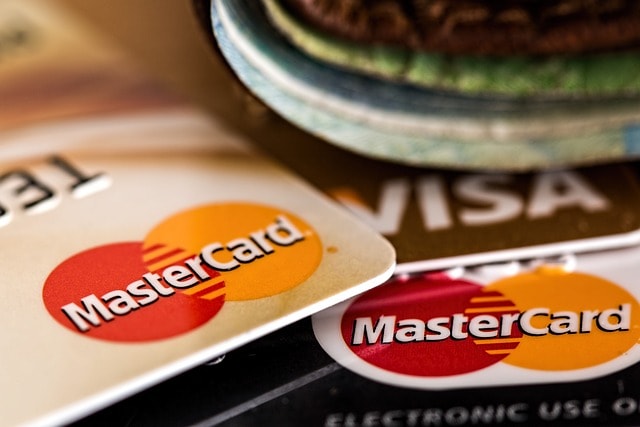Building credit business is an essential step for any company aiming to secure financial flexibility, establish credibility, and achieve long-term success. This article provides an in-depth exploration of the best strategies for building and managing business credit effectively.
Understanding Credit Business
What is Business Credit?
Business credit is a company’s record of borrowing money and repaying it, much like personal credit. It reflects the financial behavior and reliability of the business. A strong credit profile is crucial for obtaining loans, securing favorable payment terms with suppliers, and enhancing your company’s overall reputation.
Key points to understand about credit include:
- Facilitates Borrowing: Establishing a solid business credit score makes it easier to access financing when needed.
- Competitive Advantage: Small businesses with good credit can negotiate better terms with suppliers and lenders.
- Independent from Personal Credit: While related, business credit is distinct from personal credit and focuses on the financial history of the business itself.
By understanding business credit, you lay the foundation for financial opportunities and stability. Small businesses often need to borrow money to scale operations, manage cash flow during slow periods, and take advantage of opportunities.
Related: Subprime Business Lenders: Unlock Growth for Bad Credit
Business Loans
02


5
Average Review
Business Loans
- Provides data-driven financial solutions
- Loan amount: $15K - $1M
- Time in business: 12+ months
- $12.5K in monthly revenue
- Minimum credit score: 600
01

Establishing Your Business Credit Foundation
Registering Your Business
The first step in building business credit is to register your company with the appropriate authorities.
- Legal Registration: File your business with your state’s secretary of state as part of the incorporation or registration process.
- Choose a Legal Entity: Forming a separate legal entity, such as an LLC or corporation, helps create a distinct credit file for your business.
- Verify Requirements: Ensure you meet all local, state, and federal registration requirements for full compliance.
Creating a legally distinct entity separates your personal and business finances, which is critical for establishing business credit.
Opening a Business Bank Account
A dedicated business bank account is an essential tool for managing your company’s finances and building credit.
- Credibility with Lenders: Having a business bank account demonstrates professionalism and financial responsibility.
- Financial Separation: It ensures that your personal and business expenses remain separate, avoiding complications at tax time.
- Credit File Creation: Opening a business account is often a prerequisite for creating a business credit profile.
- Access to Business Lines: A business bank account can facilitate access to unsecured business lines of credit, which are essential for managing cash flow and financing growth.
A well-maintained business bank account signals to lenders and creditors that your business is financially disciplined.
Building Your Credit History
Getting Credit Accounts That Report
To build credit, you need accounts that report your payment history to business credit bureaus.
- Vendor Accounts: Start with suppliers who offer trade credit and report your payments to agencies like Dun & Bradstreet or Experian.
- Business Cards: Use business credit cards strategically to establish a positive credit history.
- Consistent Payments: Timely payments are crucial for maintaining a strong credit profile.
Establishing a credit history opens doors to better loan terms, higher credit limits, and lower interest rates.

Managing Personal Credit for Business Success
New businesses often rely on the owner’s personal credit when applying for initial financing.
- Start Strong: Work on building your personal credit score if it’s limited or poor. The Consumer Financial Protection Bureau (CFPB) offers resources for improving credit.
- Monitor Personal Impact: Poor personal credit can affect loan approvals, insurance rates, and business opportunities.
While building a strong business credit profile, keep an eye on your personal credit to maximize your chances of success.
Understanding Credit Score for Business
Business FICO Score
Your business may have multiple credit scores from various agencies, including the FICO Small Business Scoring Service (SBSS).
- FICO SBSS Score: This score evaluates both your business and personal credit together, offering lenders a comprehensive view of your financial health.
- Significance of FICO Scores: As with personal credit, FICO is a trusted name in business credit scoring and plays a major role in loan decisions.
Understanding how your scores are calculated allows you to take targeted actions to improve them.
Business Loans
02


5
Average Review
Business Loans
- Provides data-driven financial solutions
- Loan amount: $15K - $1M
- Time in business: 12+ months
- $12.5K in monthly revenue
- Minimum credit score: 600
01
Growing Your Business with Credit
Using Business Cards Effectively
Business credit cards are a versatile tool for managing expenses and building credit.
- Cash Flow Management: Credit cards can bridge gaps in cash flow by financing short-term expenses.
- Rewards and Benefits: Choose a card that offers perks like cashback or travel rewards that align with your business needs.
- Office Supply Stores: Some business credit cards offer double miles or cashback on purchases made at office supply stores, providing additional financial incentives.
- Responsible Usage: Avoid overextending your credit and pay off balances promptly to maintain a positive payment history.
When used wisely, business credit cards enhance your financial flexibility and strengthen your credit profile.
Managing Credit Risks
With many types of business credit, lenders may require a personal guarantee, which has implications for your finances.
Personal Guarantees:
These agreements make you personally liable for your business’s debts, putting your personal assets at risk.
Weigh the Risks:
Understand the terms and conditions of any credit agreement before signing.
Revolving Credit: Understand the terms of revolving credit options, such as lines of credit and small business credit cards, and manage payments wisely to avoid high-interest fees and maintain a favorable credit score.
Mitigating risks ensures that your business credit-building efforts do not jeopardize your personal financial stability.
Personal Guarantees
A personal guarantee is a common requirement for many types of business credit, including business credit cards, loans, and lines of credit. When you sign a personal guarantee, you’re essentially putting your personal credit on the line to secure the credit for your business. This means that if your business is unable to repay the debt, you’ll be personally responsible for paying it back.
Personal guarantees can be beneficial for businesses that are just starting out or have a limited credit history. By signing a personal guarantee, you can demonstrate to lenders that you’re committed to repaying the debt and willing to take on personal risk to secure the credit for your business.
However, personal guarantees can also be a significant risk for business owners. If your business is unable to repay the debt, you could be held personally liable for the amount owed. This could damage your personal credit score and put your personal assets at risk.
To minimize the risks associated with personal guarantees, it’s essential to carefully review the terms and conditions of the credit agreement before signing. Make sure you understand the amount of debt you’re taking on, the interest rate, and the repayment terms. You should also consider seeking the advice of a financial advisor or attorney to ensure you’re making an informed decision.
In addition to personal guarantees, there are other ways to establish credit for your business. You can start by opening a business bank account and applying for a business credit card or line of credit. You can also work on building a strong business credit history by making on-time payments and keeping your credit utilization low.
By understanding the role of personal guarantees in business credit and taking steps to establish a strong credit history, you can help your business access the credit it needs to grow and succeed.
Monitoring and Maintaining Good Business Credit
Business Credit Reporting Agencies
Just as there are consumer credit bureaus, there are business credit reporting agencies that track your company’s financial behavior.
- Major Agencies: Key players include Dun & Bradstreet, Experian Business, and Equifax Business.
- Data Collection: These agencies collect information on your payment history, credit utilization, and overall financial responsibility.
- Regular Monitoring: Check your business credit reports periodically to detect errors or signs of identity theft.
By staying informed about your credit profile, you can address issues quickly and maintain a strong credit standing.
Building and maintaining good business credit is a critical component of small business success. From registering your business and opening a bank account to using credit cards responsibly and monitoring credit reports, every step you take contributes to your company’s financial health.
Business Loans
02


5
Average Review
Business Loans
- Provides data-driven financial solutions
- Loan amount: $15K - $1M
- Time in business: 12+ months
- $12.5K in monthly revenue
- Minimum credit score: 600
01
By following the strategies outlined in this guide, you can establish a solid credit foundation, manage risks effectively, and leverage credit to grow your business. With time and effort, a strong business credit profile will provide financial stability, flexibility, and opportunities for expansion.


 Read More
Read More 




